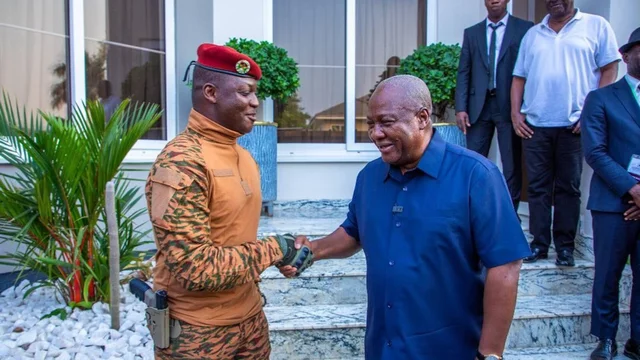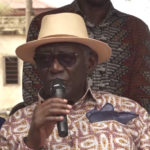Ghana and Burkina Faso are set to strengthen their bilateral cooperation through the validation of framework agreements and memoranda of understanding (MoUs) for their shared international land boundary.
The three-day meeting, hosted by the Ghana Boundary Commission (GhBC), brought together key stakeholders from both countries to review and finalise the legal instruments necessary for joint boundary management.
Addressing the gathering, Commissioner-General of the Ghana Boundary Commission, Brigadier General Anthony Ntem, underscored the importance of cooperation and mutual trust in strengthening the border between the two nations. He noted that validating the legal texts for joint border management would enhance effective cross-border collaboration.
Brigadier General Ntem described the border as more than a dividing line, calling it a set of “bridges” that connect communities, stimulate trade, and promote security.”
Deputy Minister of Lands and Natural Resources, Yusif Sulemana, highlighted the centuries-old relationship between Ghana and Burkina Faso, built on fraternity and mutual respect.
He emphasized that the over 583-kilometre border should not be seen as a separation, but as a space of interaction where communities have lived, traded, and cooperated peacefully for generations.
“This meeting represents an affirmation of our shared commitment to transform that common space into a true frontier of cooperation, stability, and prosperity,” Mr. Sulemana stated.
He also commended the technical and financial support provided by GIZ, reaffirming Ghana’s commitment to working closely with Burkina Faso in the spirit of partnership and solidarity.
Representing Burkina Faso, Yvette Nacoula Sanou Massadalo, Governor of the Nazinon Region, stressed that the two countries share multiple and complex challenges across their borders and trans-frontal spaces. She noted that addressing these challenges requires robust legal frameworks to operationalise cooperation among official actors in the boundary areas.
“Our main mission is to provide, at the end of this historic meeting, a relevant, adapted, and pragmatic legal framework that will translate our concerted decisions into concrete and tangible action on the ground,” she explained.
The GIZ-AUBP West Africa Regional Coordinator, Mamoudou Tapily, reiterated the importance of cross-border cooperation as a tool for structural conflict prevention, good governance, social cohesion, and economic development.
He emphasized that cross-border cooperation is now an essential strategy to tackle shared challenges such as insecurity, climate change, and economic underdevelopment.
“Cross-border cooperation is no longer a mere necessity. It is an essential strategy to face common challenges. This meeting aims to provide us with the tools to achieve this,” Mr. Tapily noted.
The finalisation of these legal frameworks marks a significant step toward transforming the Ghana-Burkina Faso border into a zone of cooperation, stability, and prosperity. As both countries move forward, the agreements are expected to promote security, stimulate cross-border trade, and deepen socio-economic ties, reinforcing the border as a bridge of unity rather than division.
Source: onuaonline.com




